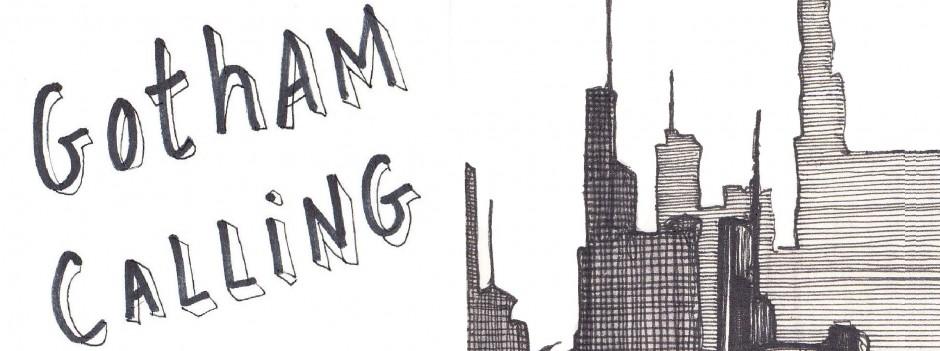We’re halfway through Gotham Calling’s tour of Cold War cinema. By this stage, it isn’t just the world situation that is rapidly changing, but filmic language itself. Apart from addressing the conflict from multiple national and ideological perspectives, most of the films below impress for the way they challenged the whole medium.
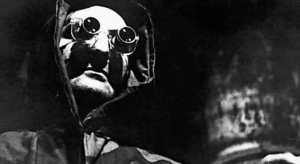
51. La Jetée (France, 1962)
Let us begin on a particularly high note… Although just 28-minutes long, the massively influential La Jetée has it all: World War III, post-apocalyptic dystopia, utopia, nostalgia, romance, telepathy, time-traveling paradoxes, and an experimental approach to visuals that still stands out today.
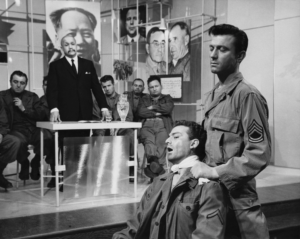
52. The Manchurian Candidate (USA, 1962)
A hallucinatory conspiracy yarn about soldiers brainwashed in the Korean War (one of whom is the stepson of a McCarthy-like senator). Way more bonkers than British cinema’s own quasi-simultaneous take on the brainwashing panic (the soap operatic The Mind Benders), this darkly comedic psychological thriller – which left a lasting mark in popular imagination – both caricatures the hysteria of the previous decade and disturbingly anticipates the paranoid mindset that would follow the JFK assassination. My use of pathologizing expressions is deliberate, as The Manchurian Candidate audaciously projects the protagonists’ (and presumably society’s) mental instability through disconcerting camera angles, bizarre line readings, jarring transitions, surreal imagery, and somewhat cryptic choices likely to prompt alternative readings of the story, especially regarding Eugenie’s character (2004’s remake gives this character a clearer role, but I much prefer her ambiguity here). Plus, Frank Sinatra does martial arts.
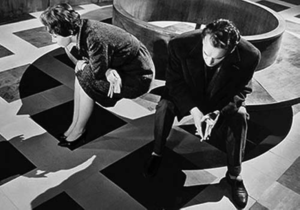
53. Nine Days of One Year (USSR, 1962)
Set in a nuclear research institute in Siberia, this remarkable drama focuses on the love triangle of a dedicated experimental physicist (who carries on despite having received deadly doses of radiation), a lively theoretical physicist (his cynical counterpart), and a frustrated wife (whose inner monologues we get to hear). As promised by the title, the film zooms in on a few selected days in their lives, grappling with dilemmas over science (from fusion power to space exploration), the political and ethical dimension of their work (should researchers be grateful for the war that funds their studies?), interpersonal relations, and, of course, mortality. Yes, it’s thematically heavy, but the cinematography and characterization make Nine Days of One Year aesthetically and emotionally rich as well.
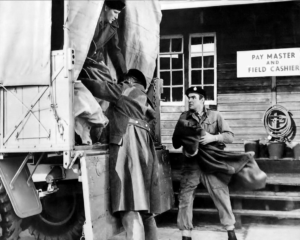
54. A Prize of Arms (UK, 1962)
Besides delivering a nail-biting heist at a British army barracks, A Prize of Arms gains an extra layer of interest because the whole thing is set against the backdrop of the Suez Crisis, so this one also works as a microcosmic illustration of the UK’s threatened – and declining – military power.
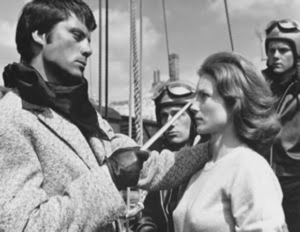
55. The Damned, aka These Are the Damned (UK, 1963 [1961])
The title evokes Village of the Damned and some of that film’s imagery does echo here, loosely, but this is a much more offbeat concoction. An eerie and unsettling sci-fi piece (with a touch of incest psychodrama) set on the English coast, The Damned somehow brings together a youth gang, an extravagant sculptor, an unlikely pair on the run, and a secret military programme to prepare children to survive the upcoming nuclear holocaust.
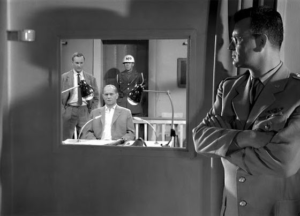
56. For Eyes Only (East Germany, 1963)
I’m not gonna lie: as a spy thriller, this is a taut yet low-key affair (loosely based on actual espionage operations) that pulls off many of the usual tropes with average competence and some groovy music. What makes For Eyes Only stand out is that, because it’s an East German production, the film fully reverses the genre’s typical geopolitical perspective: the hero is a Stasi agent who infiltrates Western secret services to prevent an attack against the East (thus implicitly validating the defensive construction of a protective Berlin Wall…). It even finishes with a chase scene in which, for once, the protagonist is desperately trying to cross the border *into* the GDR! (Recently, the show Deutschland 83 started off with a similar premise, but it had such a cynical depiction of the East that it ended up falling for the usual Western stereotypes… whereas For Eyes Only is the real deal, without any retroactive sense of irony or self-reflection.)
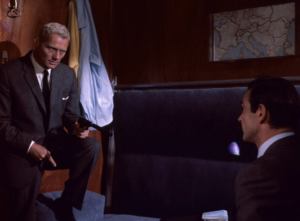
57. From Russia with Love (UK/USA, 1963)
James Bond goes to Istanbul to help a sexy Russian cipher clerk defect to the West, even though he knows damn well the whole thing is bound to be a trap. Like in most 007 pictures, the main villain is not the USSR itself, but a third party exploiting the Cold War (although the Soviets are nonetheless generally coded as evil).Besides being an obvious counterpart to the likes of For Eyes Only, this is also a spiritual opposite of A Prize of Arms: here, everyone acts as if Britain is still a major geopolitical player in the new world order, Suez and decolonization be damned. The formula and themes apply to practically all of the Bond film series, so this entry stands as representative of the entire franchise. (From Russia with Love was always my favorite… at least until 2006’s Casino Royale came along!)
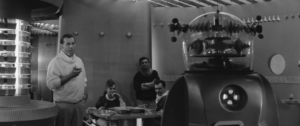
58. Ikarie XB 1 (Czechoslovakia, 1963)
Interested both in outer space travel and in the evolution of earthly society, this sci-fi masterpiece about a ship searching for life in Alpha Centauri, in 2163, visualizes a utopia where the Cold War is ancient history and mechanization has freed workers from most physical labor (to the point that the astronauts actually seem bored in the first stretch of the film, before the adventure kicks in), even if there is still lingering gender, racial, and generational inequality. Ikarie XB-1 probably feels even more fantastic now than it did at the time… In just a few years, the Soviets had launched into orbit the first satellite, the first dog, and the first cosmonaut, to which JFK responded by promising – accurately, as it turned out – to put a(n American) man on the moon before the end of the decade. At the time, therefore, Czechoslovakian imagination could credibly accommodate these future paths of both technology and socialism. (Stay the fuck away from the botched US version, titled Voyage to the End of the Universe!)
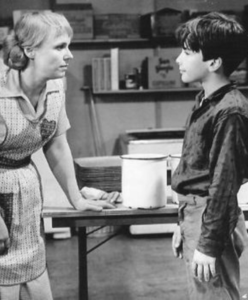
59. Ladybug Ladybug (USA, 1963)
Reverberations of the Cuban Missile Crisis start to hit the screen. Set in a countryside elementary school where the nuclear attack warning suddenly goes off, Ladybug Ladybug follows the varied reactions of teachers and students, from disbelief and growing terror to Lord of the Flies shenanigans and a melancholic acceptance of mortality. Sure, with the focus on children comes some blatantly manipulative sentimentalism, but for the most part the movie gets a lot of mileage out of the naturalistic acting, the understated direction, the characters’ believable behavior, and a chilling ending (all of this makes for a stark contrast with the similarly themed – yet hysterically reactionary – Panic in Year Zero!).
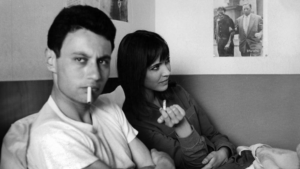
60. The Little Soldier (France, 1963 [1960])
While the Algerian War gave us the greatest war movie ever made (The Battle of Algiers) and arguably the greatest musical (The Umbrellas of Cherbourg), they fully disregard the Cold War dimension. In turn, The Little Soldier follows a French agent caught between his own secret service and communists fighting for the independence of Algeria. This description makes it sound too linear, though… That’s in the film, for sure, but also everything else that Jean-Luc Godard felt like shooting at the time. The result is often baffling, but provocative enough for it to have gotten banned in France until the end of the war.
